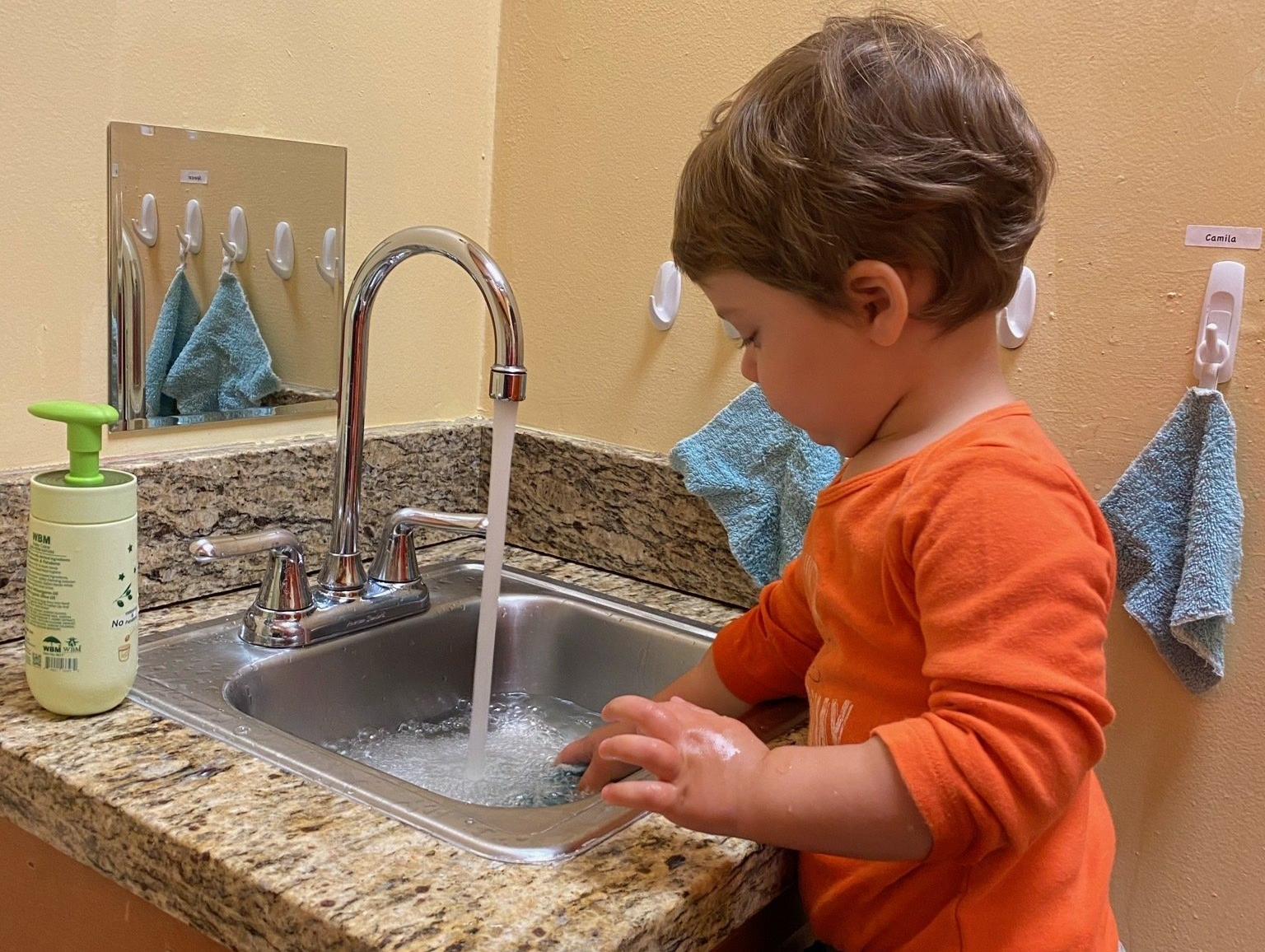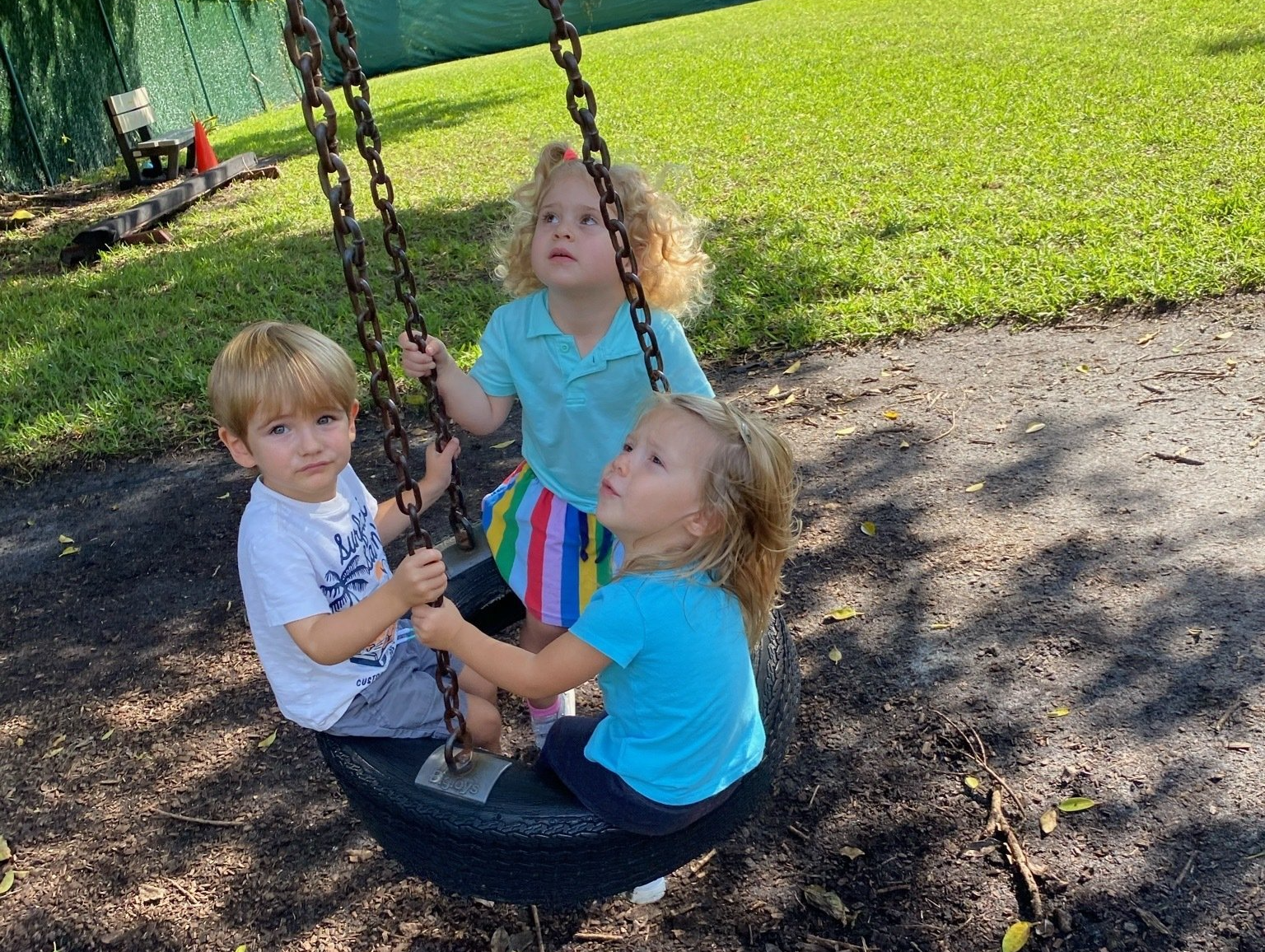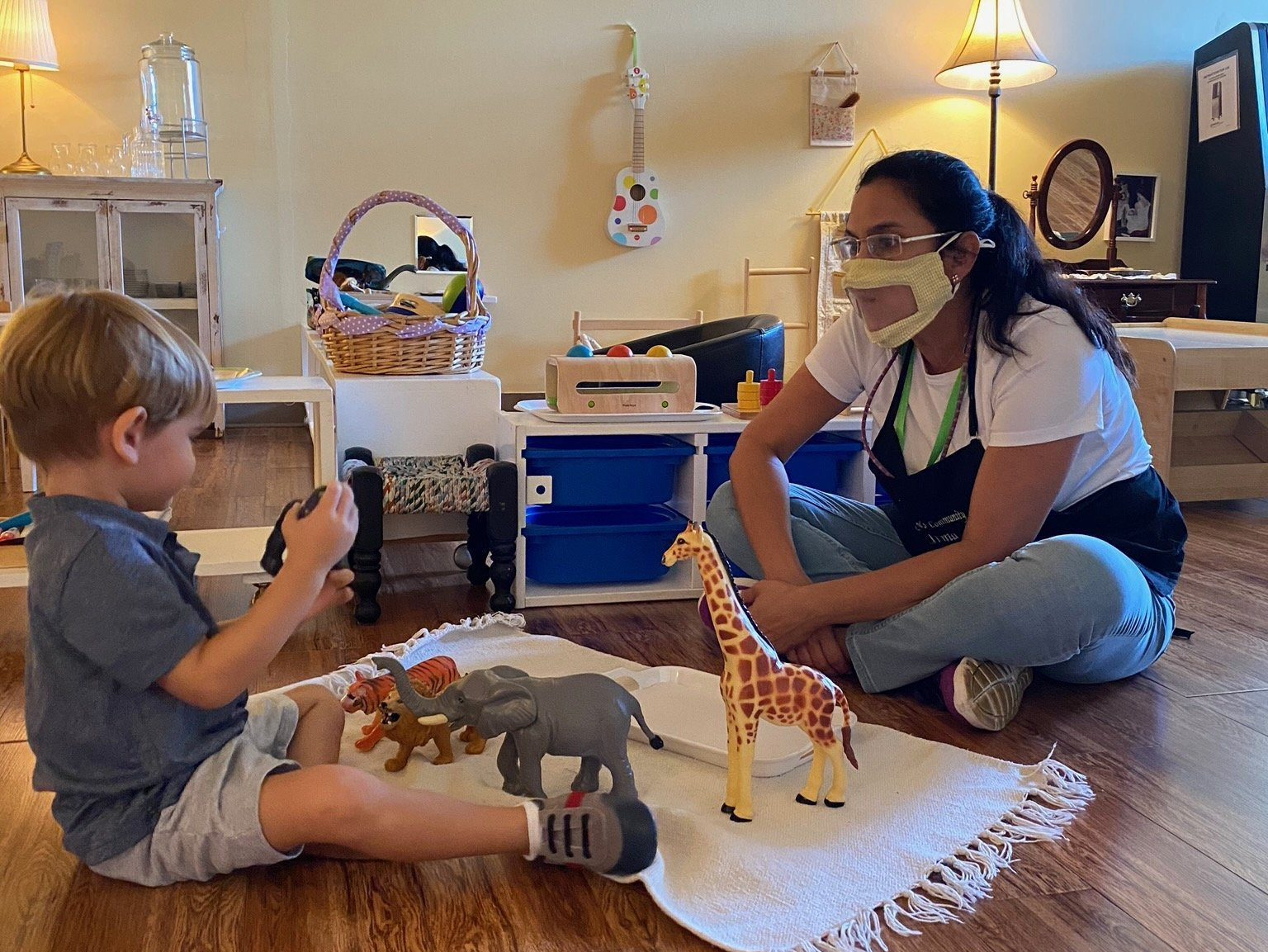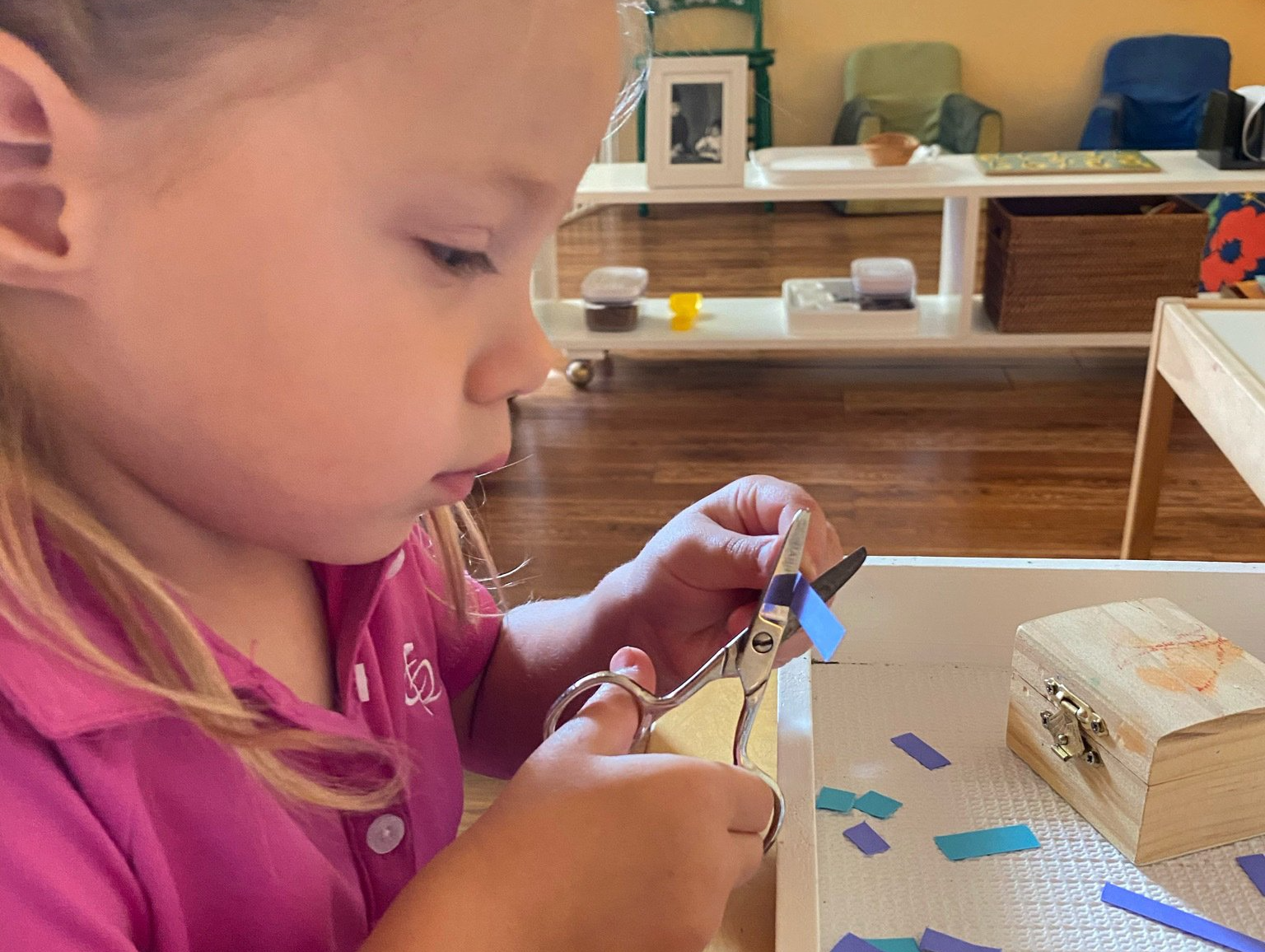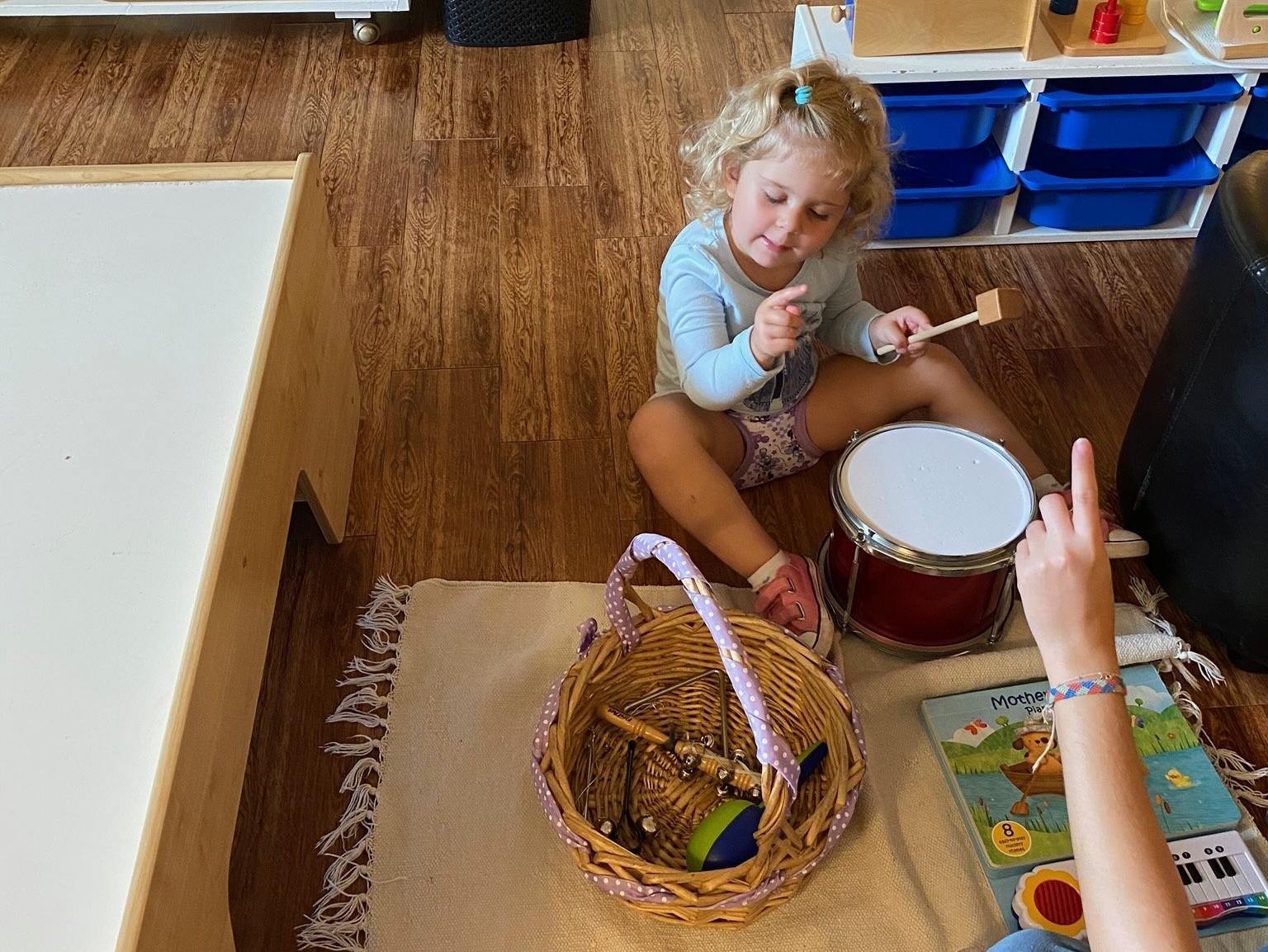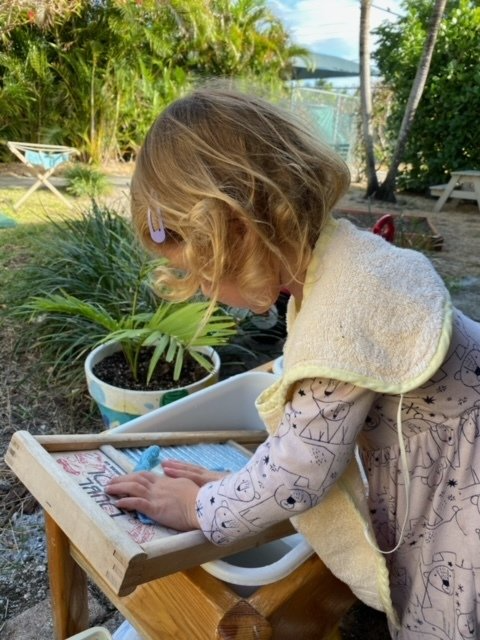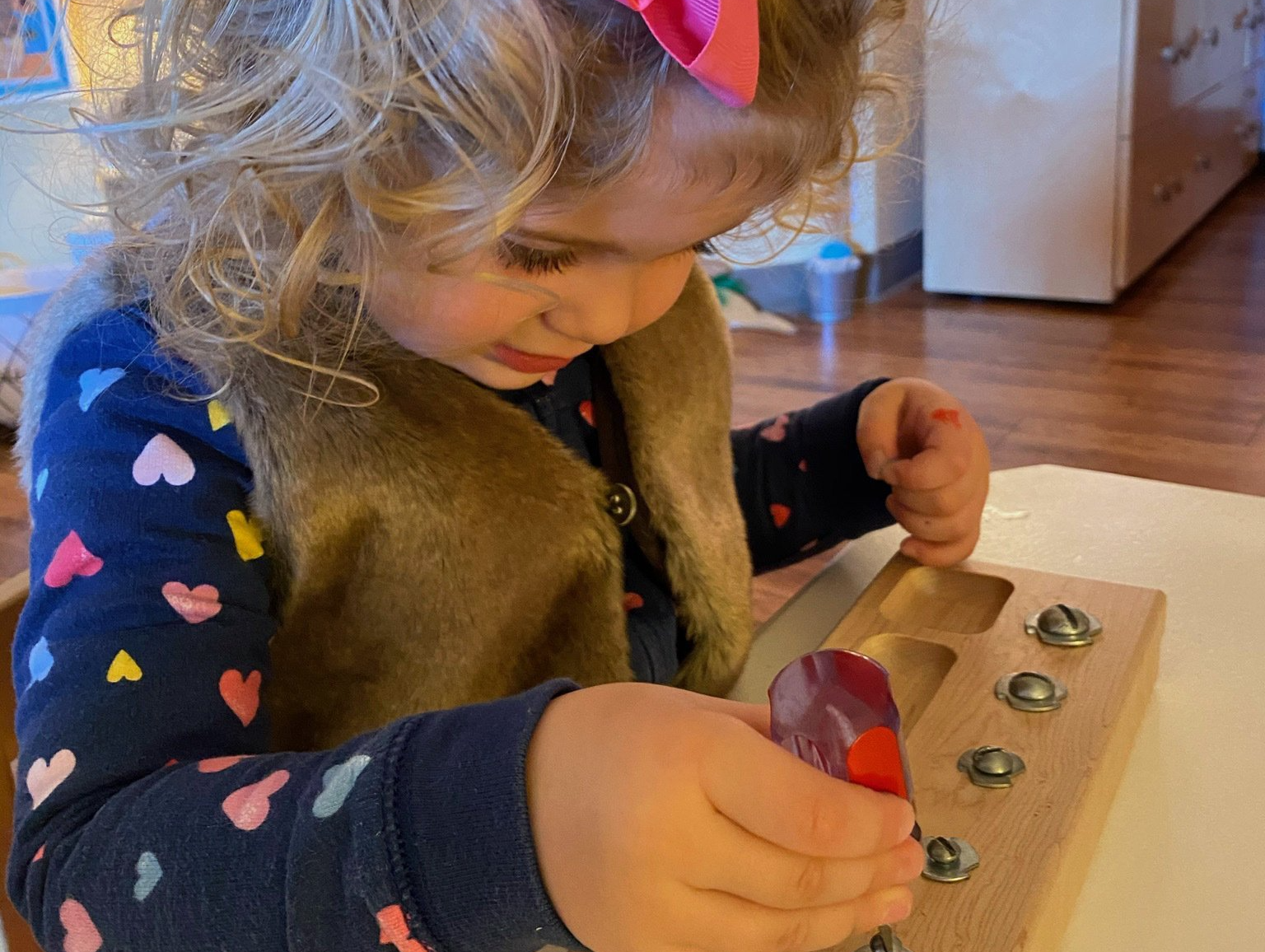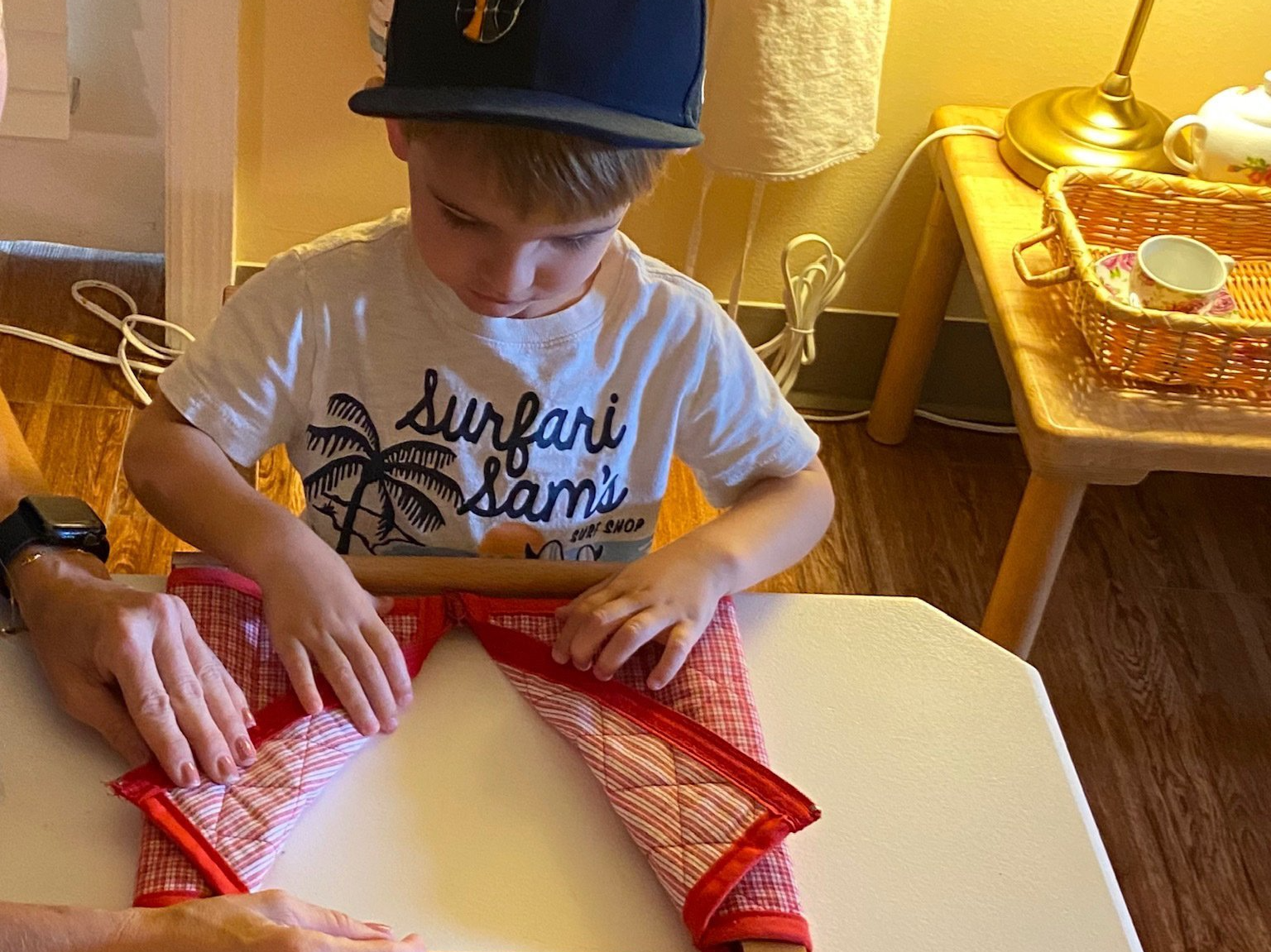Young Children’s Community
Journey to Independence
2 - 3 years

“The education of even a small child, therefore, does not aim at preparing him for school, but for life.”
- Dr. Maria Montessori
Language Development
This is a
precious time for language development in your child's life. Dr. Montessori noted that a young child's mind can effortlessly absorb more than one language at this time. Your child will experience rich and stimulating conversation from both
English and Spanish speaking adults.
Outdoor Learning
Your child has the opportunity to work in the garden, feed the birds, work with water, paint "en plein air" as well as observe caterpillars, butterflies and our school tortoise outdoors. These first experiences help to develop in our young children a
love of the natural environment.
The first few years of a child’s life are crucial to his or her personality and intellectual development.
The purpose of our Young Children’s Community is to encourage, assist and protect the normal development of each child. Children in the program flourish in a prepared environment that respects, supports, and responds to their basic needs for
independence, exploration, and the building of trust and self-esteem.
We refer to this space as a ‘community’, instead of a classroom, because the children are learning to participate in a cooperative group, as they experience their first contact with other children.
Young children need not only love, emotional nurturance, and a healthy physical environment, but also an environment that promotes their very real need to learn. The Montessori approach provides a basis for individualized learning activities, appropriate for even the earliest stages of a child’s development.
Multi-sensory Development of the Whole Child
The curriculum is based on developing the child’s social, emotional, sensory, perceptual, physical, motor, language, and self-help skills.
Dr. Montessori emphasized the need for a rich environment and noted the speed at which children can develop:
“If our own adult ability be compared with the child’s, we should need sixty years of hard work to do what he or she does in three.”
Young Children’s Community
Language
- Spanish language and conversation
- Development of conversation skills and vocabulary
- Encouragement of Self-Expression
- Stories and book corner
Art
Exposure to and practise with various mediums:
- paint
- crayons
- scissors
- pasting (collage)
- clay
Movement
- Gross motor movements
- Fine motor development
- Freedom to explore
Music
- Finger plays, dance and songs
- Music appreciation and celebration of different musical cultures
- Learning about musical instruments
Care of Self
- Awareness of one's needs
- Eating independently
- Toileting skills
- Dressing and undressing
- Hand washing
Care of Others
- Preparing snack for the community
- Compassion for others
- Community building
- Offering help
- Group work
Care of Environment
- Cleaning up after one self
- Caring for plants and animals
- Mealtime and table preparation
- Taking care of the classroom community

